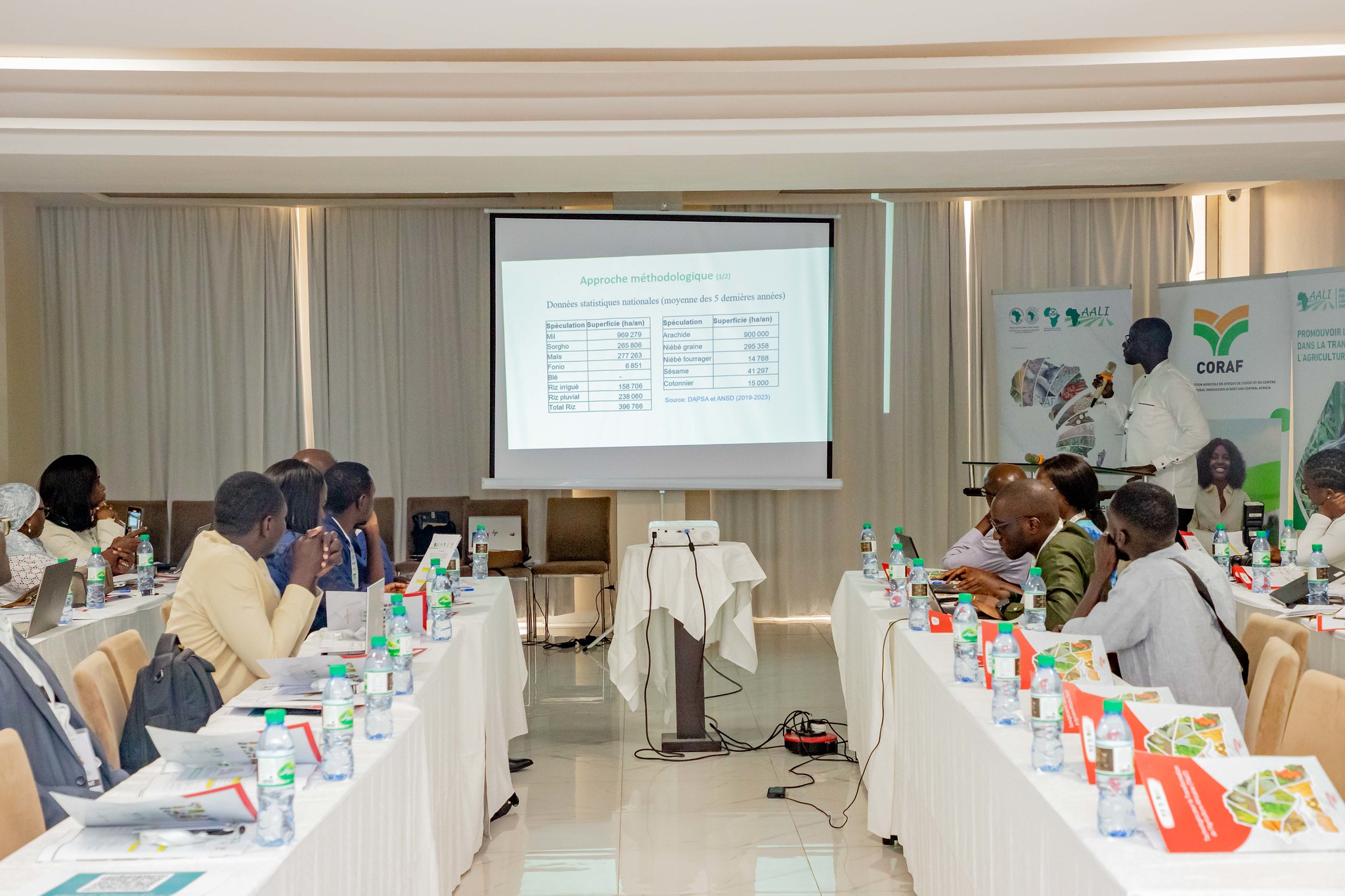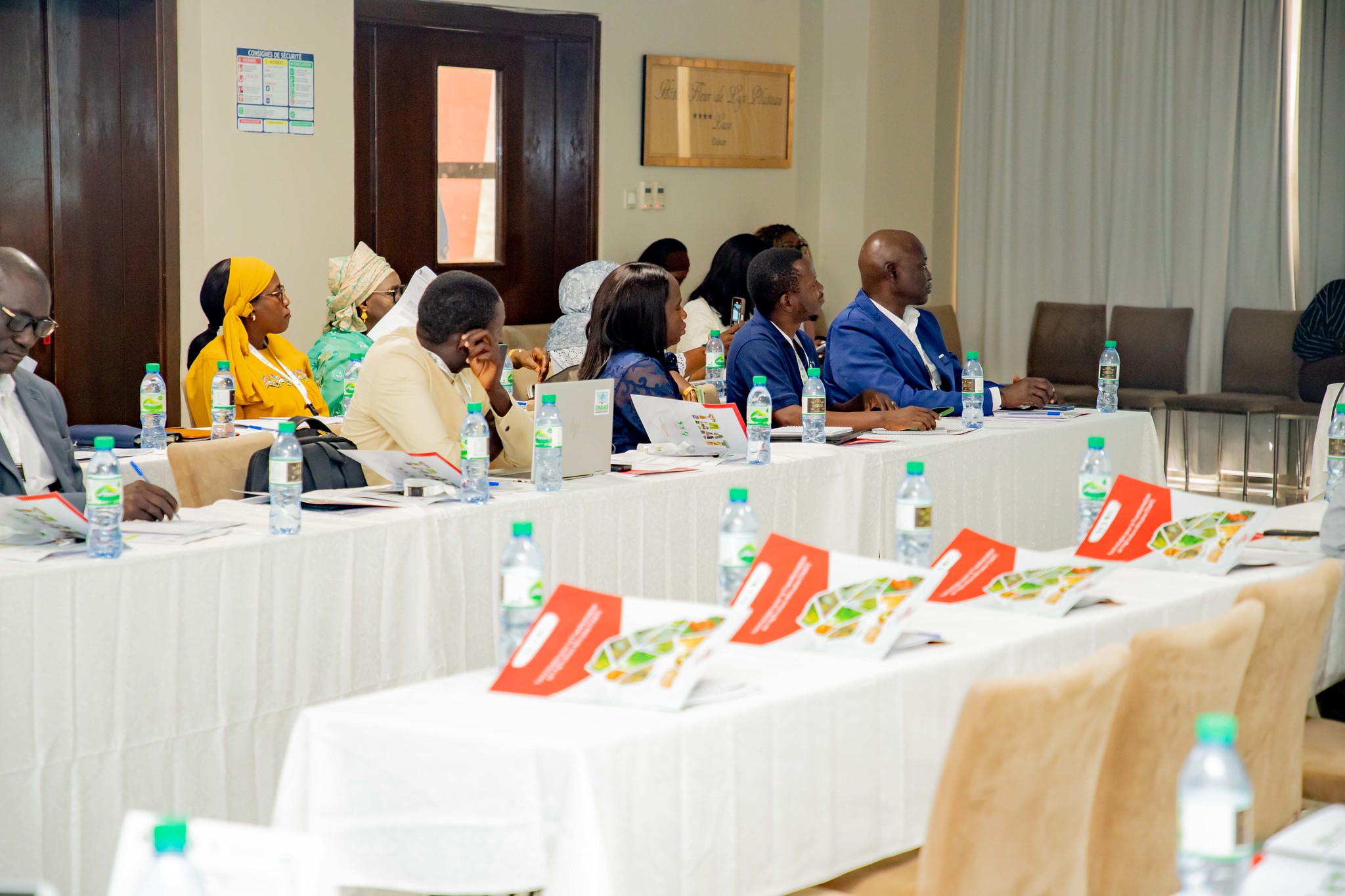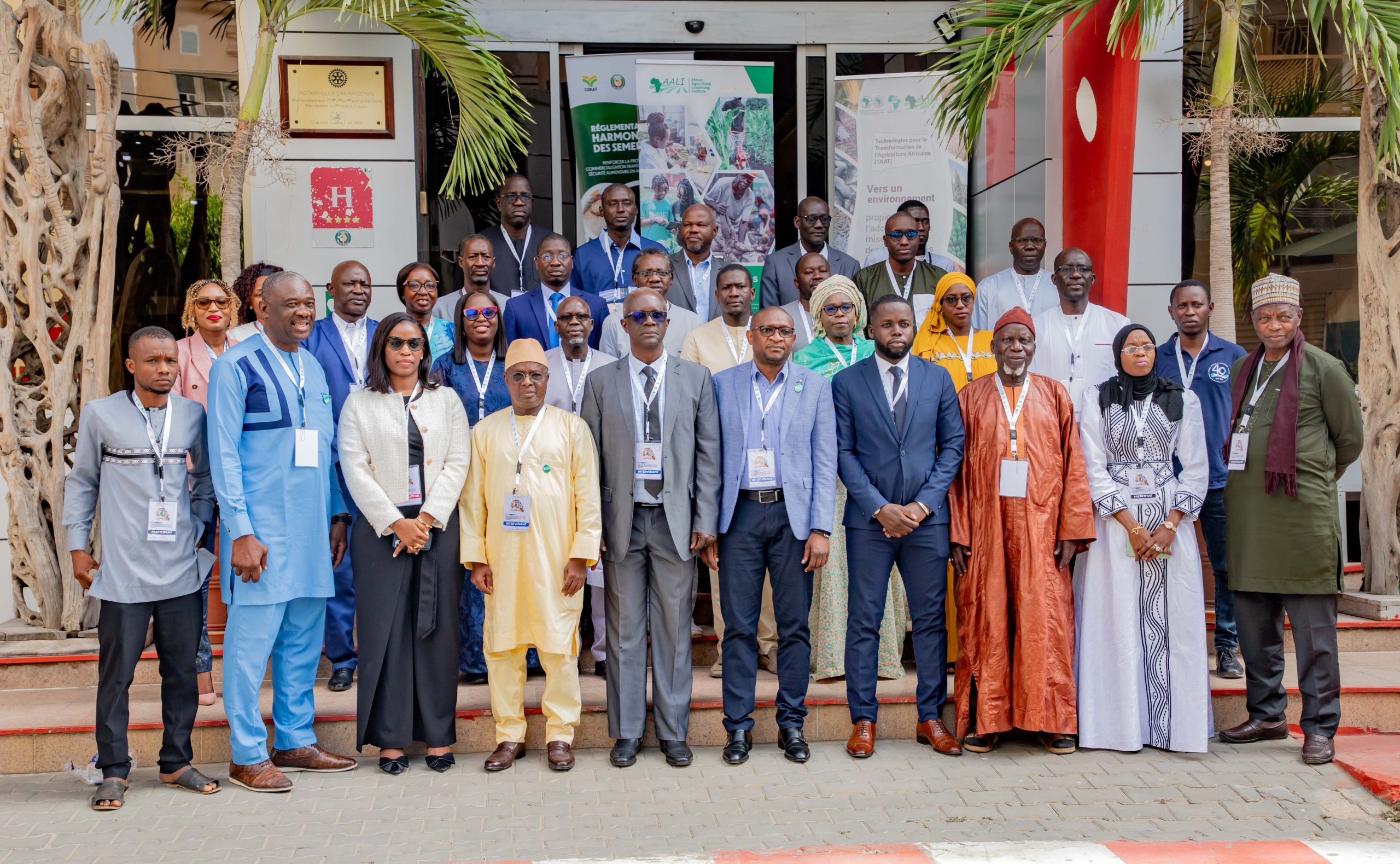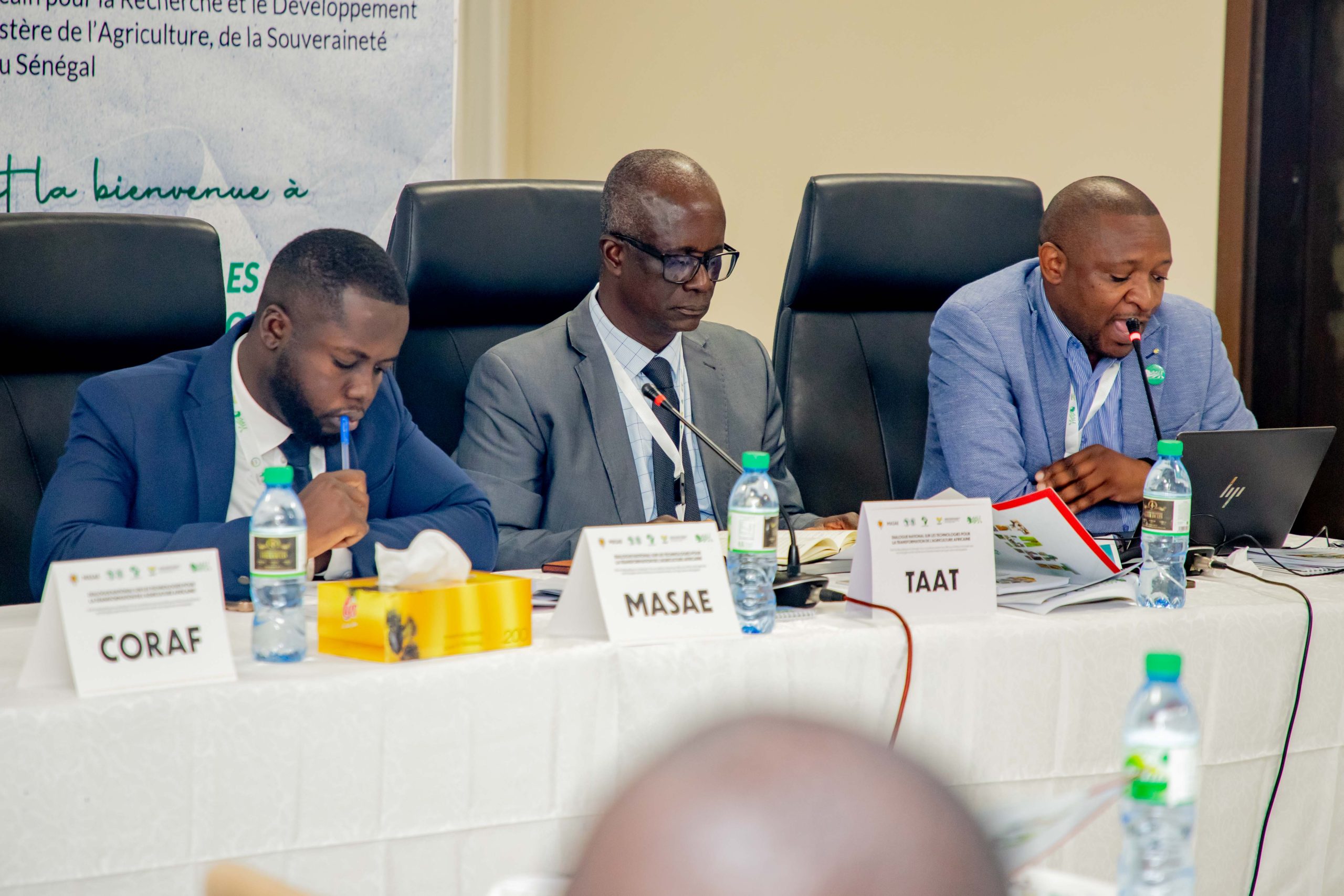The African Agricultural Leadership Institute (AALI), in collaboration with the West and Central African Council for Agricultural Research and Development (CORAF) and with the support of Senegal’s Ministry of Agriculture, Food Sovereignty, and Livestock (MASAE), organized a strategic dialogue from May 8 to 9, 2025, in Dakar. The event was held under the theme “TAAT in the Republic of Senegal: for an efficient seed system and the scaling-up of high-performance technologies for the transformation of Senegalese agriculture.”
This dialogue is part of the “Technologies for Transforming African Agriculture (TAAT)” program, an initiative of the African Development Bank (AfDB), part of its “Feed Africa” strategy. Through TAAT, the AfDB aims to provide its member countries with products and services based on proven agricultural technologies that are resilient in the face of climate change and capable of meeting the challenges associated with the productivity and transformation of Africa’s agricultural sector.

Senegal, like many African countries, faces multiple challenges, including the effects of climate change, price volatility, soil degradation, limited access to quality seeds, counterfeiting, weak regulation, insufficient seed research, and a lack of training for small-scale producers in good agricultural practices. These obstacles are holding back the sector’s modernization and competitiveness. Hence the urgent need for far-reaching reform of the national seed system, based on better coordination of players and greater support for research, because, throughout the world, an efficient seed system is the cornerstone of agricultural transformation.
National mobilization for concrete action
AALI and CORAF brought together some fifty key players: researchers, private operators, public decision-makers, and technical and financial partners. The aim was to set up an inclusive and coordinated framework for strategic reflection, aimed at formulating concrete strategies to guarantee access to certified seeds, adapted to local conditions and resistant to climatic disturbances.
This framework of exchanges has led to strong commitments and recommendations aimed at improving the production and distribution of quality seeds and, ultimately, strengthening Senegal’s food sovereignty.
Renewed commitment from the Senegalese government
Representing the Senegalese government, Mr. Moctar Ndiaye, Director of Agriculture, reaffirmed the state’s commitment to the dissemination of TAAT technologies and to strengthening public-private partnerships, particularly with technical support institutions such as AALI. He stressed the importance of building sustainable multi-stakeholder collaborations, building on existing achievements:
“Thanks to the first phase of the TAAT program and collaboration with sub-regional partners such as ICRISAT, over 450 tonnes of pre- base, base and certified seeds (R1 and R2) have been produced. Twelve proven agricultural technologies were deployed, including dual-purpose cereal varieties (grain and straw) that are resilient to climatic hazards. At the same time, nearly 200 producers have been trained, impacting more than 65,000 farms.”

Towards a resilient, integrated seed policy
Mr. Modou Thiam, President of Senegal’s Union Nationale Interprofessionnelle des Semences (UNIS), welcomed the holding of this dialogue at a strategic moment, coinciding with the launch of a new national agricultural development program. He called for ambitious policies to ensure the sector’s resilience in the face of climate change.
The participants made several recommendations along the following five key axes:
- Seed conditioning.
- Control of seed fields and lots, with promotion of privatization of control.
- Seed policy and institutional reforms.
- Seed financing and marketing.
- Integration of TAAT technologies into national agricultural policies.
These recommendations will serve as a basis for the development of policy briefs for advocacy with national and regional policy- and decision-makers.

This national dialogue, organized in Dakar, is the third of its kind, following those held in the Democratic Republic of Congo and Cameroon, illustrating the growing commitment of several African countries to strengthening their seed systems as part of a sustainable transformation of the agricultural sector.

